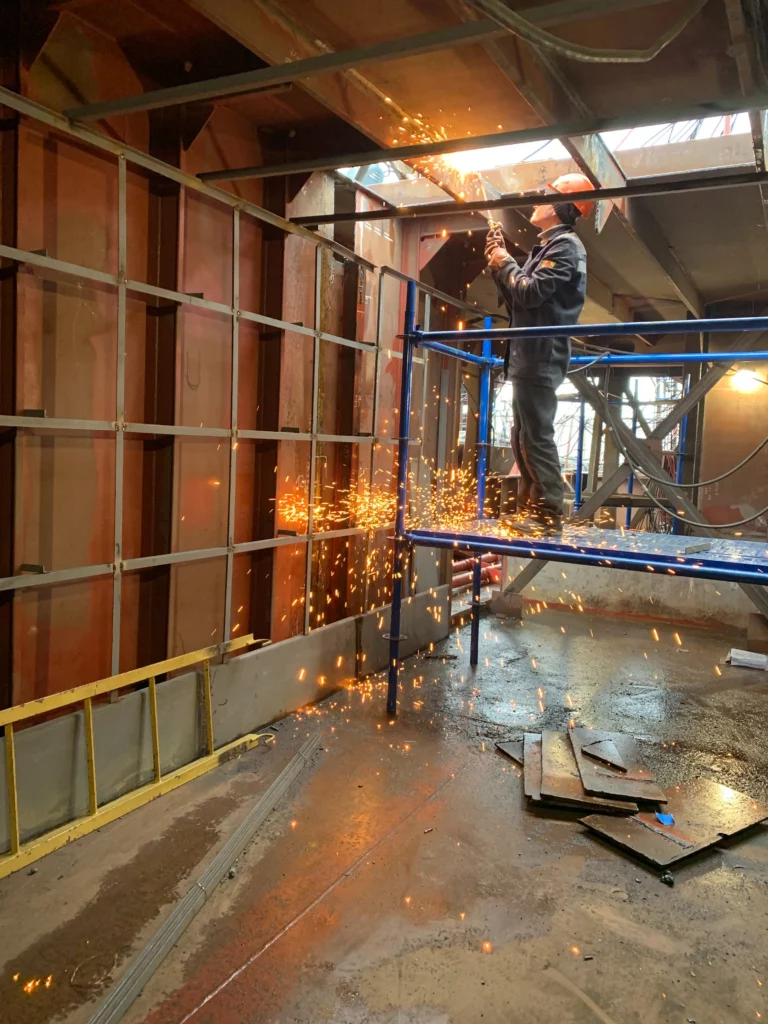
In the dynamic world of real estate investment, staying ahead of the curve requires recognizing emerging trends and adapting your strategy to meet the needs of evolving tenant preferences. One such trend that has gained significant traction is the rise of flex spaces.
In this blog post, we’ll delve into what flex spaces are and how they can be a game-changer, especially for real estate agents investing in syndications for financial freedom, wealth building, and the coveted status of being agent-optional.
Table of Contents
What is Flex Space and Why Does it Matter?
Flex space, as the name suggests, offers a flexible environment that can cater to a variety of business needs. It’s a hybrid concept that combines elements of traditional office setups with industrial functionality. This adaptability makes it an attractive option for businesses of all sizes and industries. Let’s explore why flex space is capturing the attention of both tenants and savvy real estate investors.
Understanding Flex Space
At its core, flex space emphasizes versatility. It often features smaller offices, an increased focus on parking facilities, and customizable office buildouts. This distinguishes it from conventional industrial spaces. However, the true appeal of flex space lies in its ability to seamlessly transform to accommodate diverse business activities.
Key Distinctions from Conventional Industrial Spaces
Flex space stands apart from traditional industrial spaces in several ways. While industrial spaces are usually specialized for manufacturing or warehousing, flex spaces prioritize adaptability. This distinction opens up opportunities for a wider array of businesses, enhancing the potential tenant pool.
Why Flex Space is Appealing
For real estate agents investing in syndications, flex spaces offer a range of benefits that align perfectly with their goals. Here are four cash-flowing tenant types that thrive within flex spaces:
Example 1: Service-Oriented Businesses
HVAC technicians, window washers, plumbers, electricians, landscapers, pest control experts, appliance repair specialists, and computer repair shops—these service-oriented businesses require a blend of office space for customer interactions and a base for operations. Flex spaces cater to this need precisely, providing an environment where administrative tasks and service provisions can harmoniously coexist.
Sports Instruction and Studios are also prime candidates for flex spaces. Yoga studios, dance classes, and fitness centers benefit from the adaptable layout, enabling them to create the ideal ambiance for their activities while managing administrative tasks efficiently.
Example 2: E-commerce and Fulfillment Centers
As online retail continues its unprecedented growth, e-commerce and fulfillment centers have become vital players in the business landscape. These operations demand a combination of office space for management tasks and warehousing for inventory storage. Flex spaces, with their adjustable configurations and amenities like overhead doors, fulfill these requirements seamlessly. This versatility is particularly evident in businesses like apparel companies, which need both office areas and storage facilities to manage their operations effectively.
Example 3: Light Manufacturing Ventures
Light manufacturing businesses require workshop areas, storage for raw materials and finished products, as well as spaces for customer interactions and support staff. Flex spaces offer an ideal solution by providing a cohesive environment for all these activities. Industries like custom cabinetry, granite sales and installation, furniture production, electronic repair shops, and printing and signage companies can thrive within the adaptable confines of flex spaces.
Example 4: Food Services and Preparation
The culinary world also finds a welcoming home in flex spaces. Businesses in food service, food preparation, and specialty food production benefit from the distinct separation of kitchen components and customer-facing areas. Whether it’s a bakery, a catering company, or a specialty food producer, the combination of functional kitchen space and office/customer service areas makes flex spaces a natural fit.
Conclusion
In the realm of real estate investment, recognizing trends that align with your goals is essential. The surge in flex spaces is driven by their adaptability, making them the perfect canvas for various tenant types. For real estate agents investing in syndications, these spaces offer a golden opportunity to provide valuable options to businesses while securing stable cash flow.
By accommodating a diverse range of tenant types, from service businesses to e-commerce operations, light manufacturers, and food ventures, flex spaces empower real estate agents to build and protect their wealth, ultimately paving the way to financial freedom and the luxury of becoming agent optional. So, as you navigate the exciting landscape of real estate investment, consider the power of flex spaces to elevate your strategy and propel you toward your goals.



